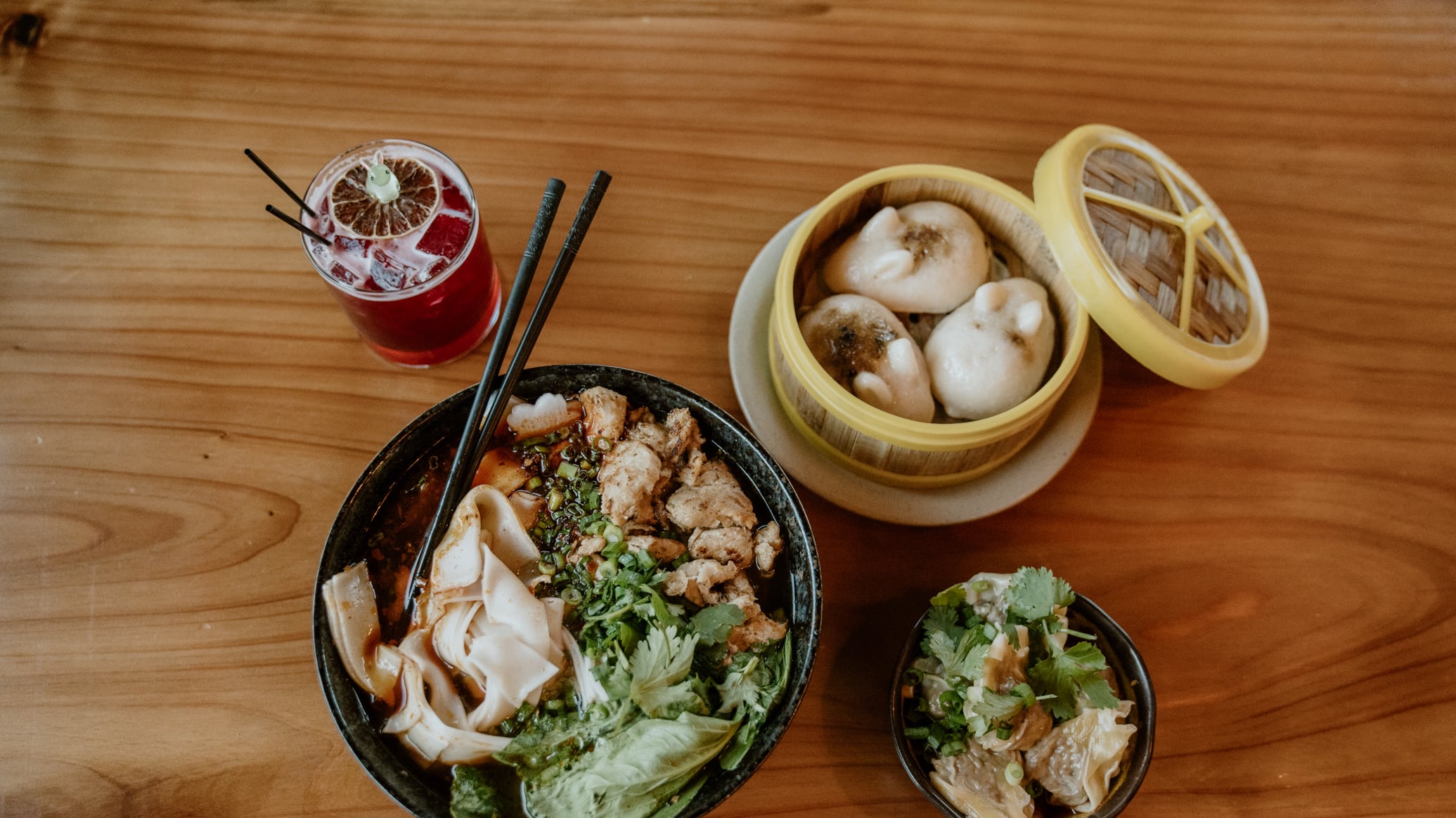The relationship between chef Cyrus Ichiza’s vegan Chinese restaurant Jade Rabbit and Christine and Stephen Hopkins’ Aimsir Distilling Company torched during the Year of the Dragon.
Their brands connected for a pop-up collaboration in 2022. Jade Rabbit formally formed as a permanent concept in 2023, the Year of the Rabbit, and is named for the mythological legend of the moon-dwelling Jade Rabbit. When the distilling company announced Aimsir’s permanent closure on Jan. 2, it acknowledged that Jade Rabbit helped delay the inevitable by another year. Ichiza agreed, telling WW that he and Aimsir’s former kitchen employees are exploring their legal options regarding loss of income and other factors. Neither Hopkins responded to WW’s interview requests.
Two weeks and two days after Aimsir’s closure, Jade Rabbit reopened at the corner of Southeast Belmont Street and 23rd Avenue, just in time for the Year of the Wood Snake’s start at the end of the month. Snakes represent wisdom, intuition and transformation in Chinese astrology, and some astrologers believe this year will be characterized by thoughtful progress and renewal in many areas of life. Jade Rabbit’s new digs are a pastel green that wouldn’t look out of place in Miami, nor would the walls of vertical foliage or geometric gold wall art or luxe hotel-style furniture amid gold-hue traditional Chinese art.
Jade Rabbit’s fans—to say nothing of its staff and extended support network—were loyal before the move, and packed the house so tightly on Saturday, Jan. 18, that grabbing a table off the street seemed impossible. By contrast, seating Sunday afternoon was calm enough that early seating was possible just after noon. Jade Rabbit is collectively owned by all employees, and similar to the house policy of such Portland restaurants as Cafe Olli and Ava Gene’s, the final bill carries a 22% service charge, which includes two percent toward healthcare insurance benefits. With this in mind, certain imperfections are hard to ignore.
Some are forgivable for a restaurant on its second day open, like trying to figure out the music system’s volume level. Others, like a visibly dirty table an hour after opening, are more difficult to let slide. The host’s advice to “just order a lot of things,” with no warning that everything would arrive all at once, wasn’t overly helpful.
On first visit, the imitation-imitation crab rangoons with sweet chili banana sauce ($14) felt like the clear winner for flavor, texture and presentation. Served on a bed of orange flower petals, the rangoons occasionally popped with juiciness and a passable crab salad with spring onions and peppercorn, highly complemented by the dipping sauce. The dippable wonton chips left over after the satisfyingly packed rangoon are worth drenching in the sauce, which lends a barbecue quality. The six bunny buns cross the finish line next, with three white rabbits easily beating three tortoise-hue hares on all counts. The puto pao bunny bao ($14) feels comfortably loaded with vegan pork, though the described black garlic and brown sugar inside the Filipino-style rice flour buns weren’t detectable, and ultimately needed help from the table’s soy and pepper sauces.
The jade green tapioca mochi bunny dumplings ($11) similarly lacked the zest of listed flavors like the dough’s garlic chive, and held a significantly higher dough-to-filling ratio than the bao buns. The vegan chicken filling with garlic and sesame was tasty for the brief moment it appears amid a gel-like casing. Should Ichiza develop signature sauces for what plainly look like Jade Rabbit’s star attractions, or even formulate a gourmond version of the mochi bunnies, both dishes would immediately elevate to their full potential. Likewise, it’s hard to mess up chopped cucumber slices with purple petals sprinkled into the oil-based dressing ($8), but an extra pop of seasoning would go a long way toward making the kitchen’s blends craveable.
The beancurd skin dumplings, filled with mung bean noodle, black fungus, bamboo and carrot ($13) weren’t worth finishing. The fried skin gave only a little crispy crunch, but was otherwise too tough to cleanly tear apart while eating with chopsticks. Other fried plates come with dipping sauces, but the gravy dolloped on top of the roll-shaped dumplings lacked both portion and zest to even things out.
The ultimate verdict is that Jade Rabbit is plainly still nesting, but certainly worth a few visits to fully explore the menu’s rabbit holes. The kitchen’s ingredients are inarguably fresh—the soy used for vegan meats is imported after being aged for three years—but dishes more often came to emphasize texture than flavor. That said, one visit barely scratched the surface of Jade Rabbit’s menu. Unable to dive into either the restaurant’s soup-based courses or gorgeous-looking cocktails, at least one return visit is required during the next lunar year.
TRY IT: Jade Rabbit, 2304 SE Belmont St., jaderabbitpdx.com. Noon–9 pm Monday–Friday, 11 am–9 pm Saturday–Sunday.

